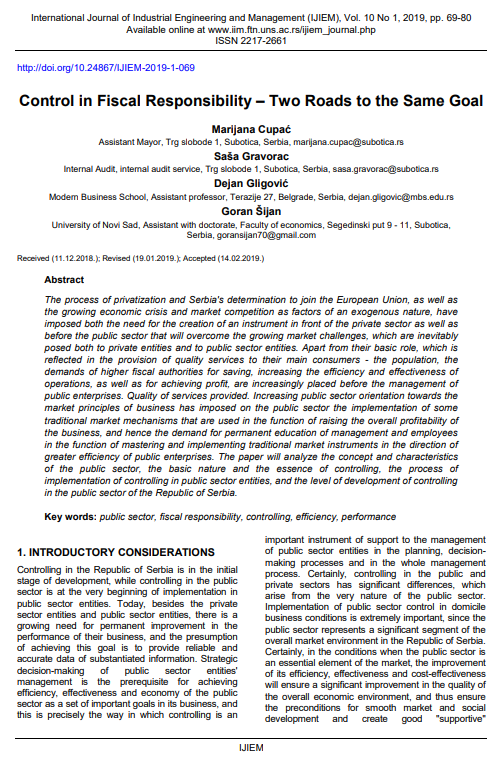
Published 2019-03-30
abstract views: 32 // FULL TEXT ARTICLE (PDF): 0
Keywords
- public sector,
- fiscal responsibility,
- controlling,
- efficiency,
- performance
How to Cite
Copyright (c) 2023 International Journal of Industrial Engineering and Management

This work is licensed under a Creative Commons Attribution 4.0 International License.
Abstract
The process of privatization and Serbia's determination to join the European Union, as well as the growing economic crisis and market competition as factors of an exogenous nature, have imposed both the need for the creation of an instrument in front of the private sectoras well as before the public sector that will overcome the growing market challenges, which are inevitably posed both to private entities and to public sector entities. Apart from their basic role, which is reflected in the provision of quality services to their main consumers -the population, the demands of higher fiscal authorities for saving, increasing the efficiency and effectiveness of operations, as well as for achieving profit, are increasingly placed before the management of public enterprises. Qualityof services provided. Increasing public sector orientation towards the market principles of business has imposed on the public sector the implementation of some traditional market mechanisms that are used in the function of raising the overall profitability of the business, and hence the demand for permanent education of management and employees in the function of mastering and implementing traditional market instruments in the direction of greater efficiency of public enterprises. The paper will analyze the concept and characteristics of the public sector, the basic nature and the essence of controlling, the process of implementation of controlling in public sector entities, and the level of development of controlling in the public sector of the Republic of Serbia.
Article history: Received (11.12.2018); Revised (19.01.2019); Accepted (14.02.2019)

